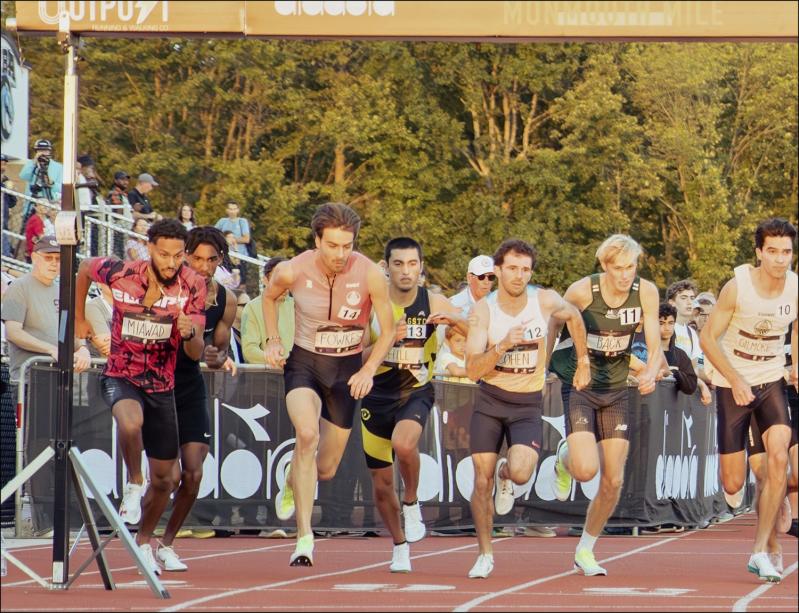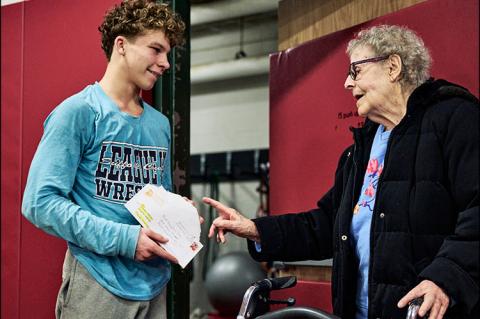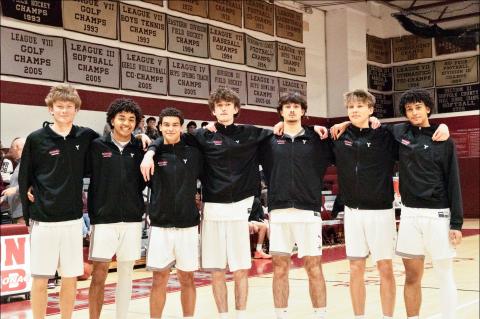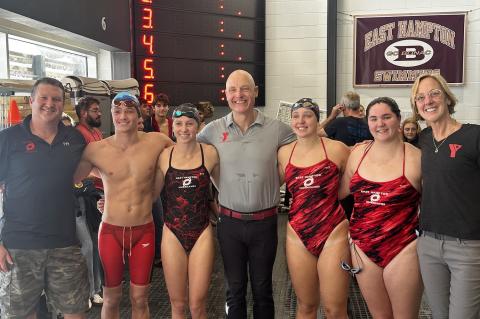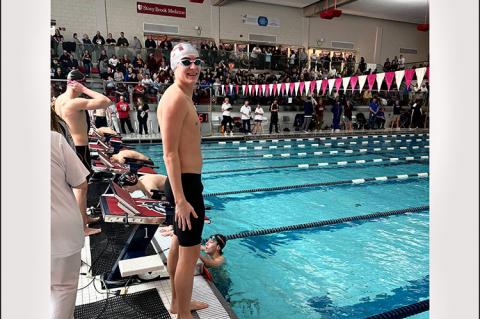There’s a theory in the field of positive psychology: “When we are conditioned to believe that something isn’t possible, we stop trying. So, the real question isn’t whether limits exist — it’s whether you believe them.” So wrote Mukesh Jain, a Harvard graduate and motivational speaker, in a March 2025 essay titled “The 4-Minute Mile Phenomenon: What Breaking Barriers Teaches Us About Success, Innovation, and Human Potential.”
Ryan Fowkes, an elite runner from East Hampton who had been chasing that 4-minute mile for years, finally broke through on Aug. 28. He achieved a time of 3:55:49 at the Monmouth Mile in New Jersey, a race with a hashtag of its own: #Sub4AtTheShore. Safe to say none of the 12 runners who cracked 4 minutes that day believed in limits.
“It was a really, really strong field,” Fowkes recalled in an interview on Saturday. He went up against Olympians, N.C.A.A. champions, and multiple runners who have represented their countries on the world stage. Perhaps 4 is his lucky number; not only was this 4-minute mile a personal best, but it also landed him in fourth place over all.
“I remember looking up at the clock past the finish line,” he said. “I saw 2:58, so I knew I was on pace. In my head I was saying, ‘Don’t mess it up.’ I ended up closing really well and went from 10th to fourth in the last lap. That was a good result. I was seeded 14th in the race. I beat a lot of guys who were fully sponsored professional runners.”
Fowkes, a 2019 graduate of East Hampton High School, is part of a team called the Enclave, which is sponsored by Bandit Running. He’s got his sights set on the 2028 Olympics, and with his Monmouth Mile finish, he’s one step closer — the race officially qualified him for the U.S.A. Track and Field national championships in 2026.
The word “officially” is key here. Back in May, Fowkes thought he’d qualified for nationals with a time of 3:38.07 in the 1,500-meter race at the Hill City Twilight Meet in Lynchburg, Va. That’s equivalent to a sub-4-minute mile. Turns out, though, that the race wasn’t a U.S.A.T.F.-sanctioned event, so his time didn’t count.
“It’s a cool thing to say you’ve done a mile in 4 minutes, because 60 years ago, that was almost seen as impossible,” Fowkes said.
That tracks with Jain’s theory. “Experts in sports physiology believed the human body simply wasn’t engineered for such speed over that distance,” he wrote. “Doctors claimed that attempting it could be dangerous, warning that a runner’s heart might explode, lungs might collapse, or muscles would tear apart under the sheer intensity. . . . Runners themselves began to believe it. The 4-minute mile became a mythical, unbreakable barrier, a number that loomed over the track like an iron gate that no one could force open.”
The first runner to do so, according to Jain, was an Oxford medical student named Roger Bannister in May 1954. The current world record is 3:43.13, set by Hicham El Guerrouj of Morocco in 1999, according to The Running Week, an online news outlet.
Fowkes’s 3:55:49 mile was a personal best by about 6 seconds. “If I can continue improving at that sort of trajectory, I’ll be world-class pretty soon, hopefully,” he said.
After running first at George Washington University and later at Virginia Tech, “I was feeling kind of burnt out. I was probably just going too hard,” said Fowkes, who’s now coached from a distance by Mark Gilmore, a Maryland-based runner, coach, and the father of a teammate. “Going with Mark slowed things down, made it simpler, and helped me get my legs back under me” for the Monmouth race, he said.
While he’s currently on a short break from training, Fowkes said his typical regimen includes running 65 to 75 miles per week. His training style for the middle distances, like the mile or the 1,500-meter event, leans more toward that of a long-distance runner with an aerobic, endurance focus. By contrast, he said, sprinters focus more on strength and power.
Fowkes won the Shelter Island 10K in June, the first time in that race’s 46-year history that a local runner took first place. His two East Hampton High School records still stand, including a time of 2:34.75 in the 1,000-meter race set in February of his senior year, but he said he’s heard of a few up-and-coming Bonac runners who are chasing history.
“Kids in high school have gotten so fast,” Fowkes said. “It’s good for the sport that everyone’s running faster, so I do hope those records go down.”

